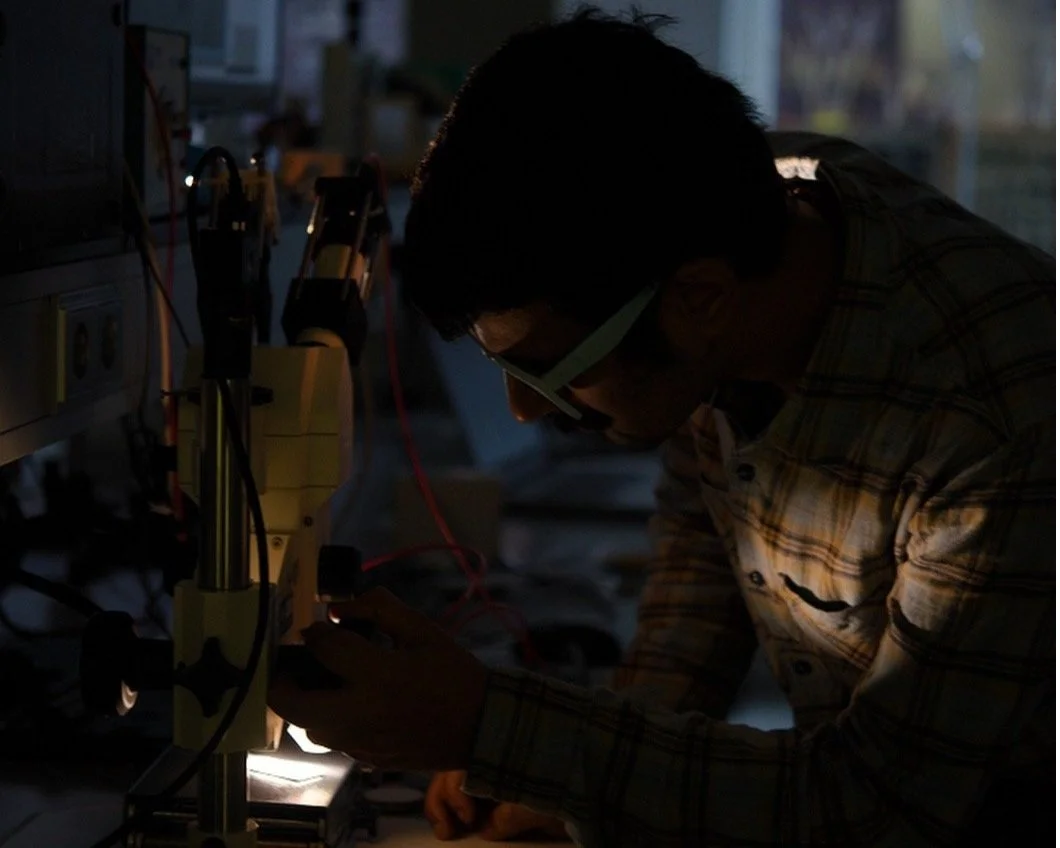Conservation - Inlaks - RS Small Grantees 2022: Akashdeep Roy, Divyanshu Pawar and Prashant Mahajan
Akashdeep Roy, Divyanshu Pawar and Prashant Mahajan are the 2022 Conservation - Inlaks - RS Small Grantees.
Akashdeep will use his grant towards understanding the construction of human-wildlife conflict through a political ecology framework in North Bengal, India.
Divyanshu will be mapping and assessing of eco hydrology and evaluating eco system services and threats of the Tri-State Myristica Swamps in India.
Prashant will be studying the ecology and conservation of mesocarnivores in Gir, Gujarat, India
Akashdeep Roy
Akashdeep Roy enjoys interdisciplinary research focusing on humans and wildlife interaction – especially interactions with large mammals. His time pursuing a Master’s at Ambedkar University, Delhi allowed him to lay the foundation of his career as he had the opportunity to conduct research on kiang in Ladhak and tigers in Sunderbans. Later, while working at the Wildlife Institute of India, Dehradun, he gained experience in mitigating human-wildlife conflict in the Eastern Himalayan landscape. The project focused mainly on elephants, leopards, and black bears through telemetry studies, camera trapping, and conflict mapping. He intends to extend this research towards his current doctoral thesis at IISER Pune.
His project will join the growing field of 'political ecology of conservation' and 'more-than-human' political ecology. It is placed at the intersection of several disciplines, such as conservation biology, anthropology, environmental history, and human geography. He will conducts his studies between the Gorumara and Jaldapara National Parks in a mixed matrix of tea gardens, agricultural fields, and small towns intersected by railways and highways in the North Bengal region. Here, he will be highlighting the complex interaction(s) between human, non-humans, and inanimate materials, in an effort to understand how social, cultural, and political differences shape social and environmental problems worldwide. In addition, he also wants to understand the socio-political implications of ecological change.
Divyanshu Pawar
Born and brought up in Pune, Divyanshu Pawar’s thirst for outdoors and research started quite early during his undergraduate studies in geology. He subsequently pursued a Master’s in Ecology, Society and Sustainable Development. His Mmaster’s research focused on groundwater and understanding it in the urban context of freshwater springs in Pune city.
Divyanshu’s interests have been wide and interdisciplinary in the field of Biodiversity, Earth Sciences, Conservation and Sustainable Development. His understanding of interdisciplinary studies and holistic approach towards a topic developed as he started working with multiple institutions such as Symbiosis International University working in climate change and sustainability; NGO’s such as ACWADAM which extensively work on groundwater issues in India; Jeevitnadi which works on river issues through community participation; and many other think tanks and independent consultants across India from diverse backgrounds. He aspires to become an eco-hydrologist, who works on grassroots conservation issues. Apart from research, he has a knack for cooking and being a big food buff he also loves to explore the food jungles around the places he visits for field work.
With the Inlaks RS Small Grant, he will be working on a neglected and critical habitats, mapping and assessment of its eco-hydrological setting while simultaneously evaluating ecosystem services and threats to the tri-state Myristica swamps in India. He will be paying particular attention to Myristica swamp sites in Maharashtra, Goa and Karnataka over the yearlong of tenure of the grant.
Prashant Mahajan
Prashant Mahajan is a graduate in B.Sc. Zoology (H) from Sri Venkateswara College, University of Delhi (2016) and has a Master’s in Wildlife Sciences from Aligarh Muslim University (2018). Currently, he is a research scholar at Aligarh Muslim University. Post his Master’s, Prashant has worked on the ecology of wolves, tigers, leopards and elephants.
He has been published in international peer-reviewed journals, book chapters and popular media. He has also presented his research in various national and international conferences. He has trained front line staff of forest department for effective biodiversity monitoring. He uses a science-based approaches to better understand the complicated web of conservation.
Prashant applies a multidisciplinary approach to tackle the multifaceted issues of conservation. The current project will focus on the ecological requirements and conservation needs of the lesser-known mesocarnivores in Gir protected area, Gujrat, India. Small and medium sized carnivores (body weight <15 kilograms) collectively known as mesocarnivores are the least studied group among the carnivores in India. Most of their information comes from the bycatch data generated through studies of large carnivores. The project will help in generating the baseline information on mesocarnivores through estimating their numbers using robust methods, dietary requirements, interspecific interaction with themselves and with large carnivores, their role as seed dispersals and role of climate change in the selection of their habitat.









